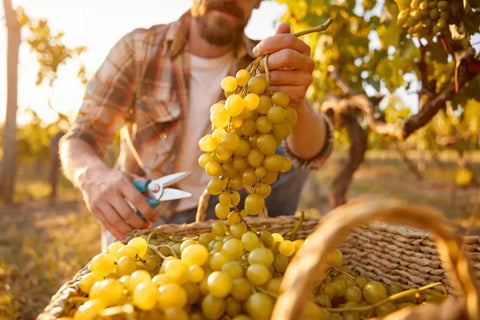Behind the Scenes: A Day in the Life of a McLaren Vale Winemaker
The role of a winemaker combines art, science, and hard work. While many imagine a romantic life of tasting wine and walking through vineyards, the reality involves early mornings, complex decisions, and constant attention to detail. Let's follow a typical day through the seasons in the life of a McLaren Vale winemaker.
Harvest Season (February-March)
Early Morning (4:30 AM - 8:00 AM)
The day begins well before sunrise. Our winemaker starts by:
The first task is checking weather data and grape chemistry results from the previous day. Temperature, humidity, and predicted conditions will determine the day's picking schedule. The picking teams are already assembling, and the winemaker must decide which blocks to harvest based on sugar levels, acid balance, and phenolic ripeness.
In the winery, the crushing pad springs to life as the first bins of hand-picked fruit arrive. The winemaker tastes berries from each batch, checking for:
- Flavor development
- Seed ripeness
- Skin condition
- Juice color
- Potential alcohol
Mid-Morning (8:00 AM - 12:00 PM)
As the sun climbs higher, attention turns to the newly crushed fruit and fermenting wines. Each ferment requires checking and decisions:
- Temperature adjustments
- Cap management
- Pump-over schedules
- Yeast health monitoring
- Extraction assessment
The winemaker moves between tanks, tasting each ferment and making detailed notes. Every batch tells a story through its numbers:
- Baume readings
- Temperature
- Color extraction
- Tannin development
- Fermentation health
Afternoon (12:00 PM - 5:00 PM)
The afternoon brings laboratory work and decision-making:
- Analysis of juice samples
- pH and acid adjustments
- Fermentation monitoring
- Tank space management
- Press scheduling
Team meetings discuss the progress of each batch and plan tomorrow's operations. The winemaker coordinates with:
- Vineyard managers
- Cellar hands
- Lab technicians
- Equipment operators
- Transport coordinators
Winter Season (June-August)
Morning Activities
Winter mornings focus on wine maturation and maintenance:
- Barrel inspections
- Topping up wines
- Malolactic monitoring
- Sulfur dioxide checks
- Blend trials
The winemaker spends time in the barrel hall, where the previous vintage slowly matures. Each barrel requires attention:
- Tasting for development
- Checking for faults
- Topping levels
- Oak integration
- Cleanliness assessment
Afternoon Tasks
Winter afternoons often involve:
- Blend trials
- Team training
- Equipment maintenance
- Vintage planning
- Sales support
Spring Season (September-November)
Morning Focus
Spring brings vineyard activity back into focus:
- Bud burst monitoring
- Frost protection
- Disease prevention
- Canopy management
- Growth assessment
The winemaker works closely with vineyard managers to plan:
- Spray programs
- Pruning strategies
- Irrigation schedules
- Crop estimates
- Labour requirements
Afternoon Duties
Spring afternoons include:
- Wine club selections
- Marketing support
- Bottle preparation
- Label compliance
- Export documentation
Summer Season (December-January)
Morning Activities
Summer mornings revolve around vineyard maturity:
- Berry sampling
- Acid testing
- Sugar monitoring
- Flavor assessment
- Harvest planning
The winemaker walks the vineyards, checking:
- Fruit development
- Disease pressure
- Water stress
- Canopy condition
- Bird pressure
Afternoon Requirements
Summer afternoons involve:
- Equipment preparation
- Team coordination
- Vintage planning
- Chemical inventory
- Tank preparation
Year-Round Responsibilities
Quality Control
Constant attention to:
- Wine development
- Fault prevention
- Style consistency
- Brand standards
- Technical accuracy
Team Management
Leadership requirements include:
- Staff training
- Work scheduling
- Safety compliance
- Problem solving
- Motivation
Business Development
Commercial aspects involve:
- Budget management
- Resource allocation
- Strategic planning
- Market awareness
- Brand development
The Modern Winemaker
Today's winemaker must balance:
- Traditional knowledge
- Modern technology
- Environmental concerns
- Market demands
- Team leadership
The role requires expertise in:
- Chemistry
- Microbiology
- Viticulture
- Business
- Marketing
Understanding a winemaker's day helps appreciate the complexity behind every bottle. It's a profession that demands technical skill, artistic sensitivity, and unwavering dedication to quality.




Comments (0)
There are no comments for this article. Be the first one to leave a message!